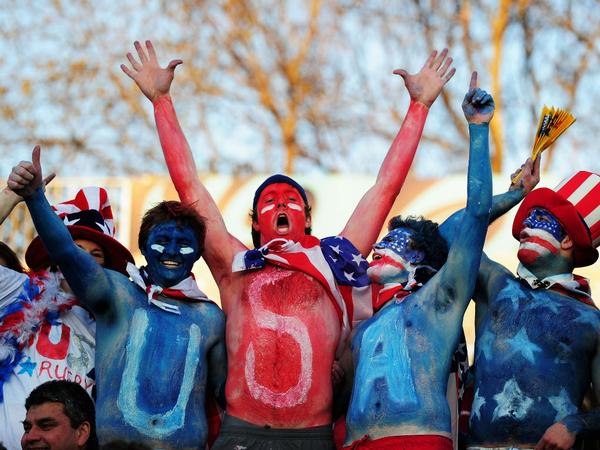
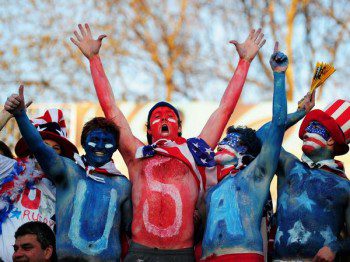
NEW YORK, NY – What lies ahead for the #bluenation2015, after a winless Rugby World Cup? It’s an interesting question. We will look at this year’s world cup performance overall. We will then analyze the state of the program, what we can build on for qualifying in 2019 and the search for a new coach.
The thoughts on this analysis come from conversations with fellow American rain men and Rugby Wrap Up guest writers Ryan Day, Mike Holzman, Nick Attewell and a few other rain men that prefer to stay in the shadows.
We begin by first reviewing the USA performance in 2015 and compare it with 2011.
Calculating success and failure is not as straightforward as comparing the 2011 tournament, when USA won a pool game and England 2015, when USA lost all four outings. The pool was much different and much more competitive than anticipated. According to Ryan Day, if you look at this pool compared to 2011: “the South Africa blowout is equivalent to the Australia blowout. There was no strong defensive performance like we had against Ireland. Russia in 2011 were, by World Cup standards, a very poor team which we did not play this time. We played Samoa a little better than we played Italy in 2011, but got romped by Scotland in the second half, plus a defeat to Japan that was a good contest, but they won by 10 and we were aiming to win that.” The small comfort was that Chris Wyles as captain was a quality decision as he lead with his play and had a much better relationship with the referees.
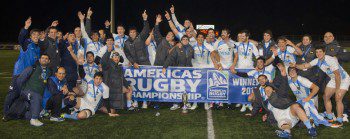
This really just confirms what we saw in the Pacific Nations Cup, the last two years. Samoa is still ahead of us and Japan has leapfrogged the USA and won the race to be the next breakthrough rugby nation. As one rain man put it, “I think USA has improved. It is more likely that all or most of the other minnows in the top 20 have improved more.”
We don’t want to scare anyone but the next four years are going to be the most important four years for the USA rugby eagles men’s national team program. Ever.
Where does the program sit right now? The 15s program is in a precarious position because of the success of the 7s program. With not enough American players able to get an overseas contract and no pro league, it is going to be hard to improve players for the longer-form game. The 7s program will also be focused on Rio 2016 for the next few months so it is unlikely that the 7s players will be able to help out the 15s program in the near future.
This is not to say it cannot be done. Take Argentina, for example. They have a large nation, dominated in a sporting context by professional soccer and basketball – and they could still develop amateurs good enough to play in Europe and make a RWC quarter-final. The USA cannot copy them exactly but one of the things it can do is shift from a club-based structure to, preferably, a regional one. Three of the leading rugby nations in the world – New Zealand, Australia and South Africa – who have each won two World Cups have this structure. But, due to the USA’s connections with England and club politics, we seem to have dropped this model. This is a mistake and needs to be rectified.
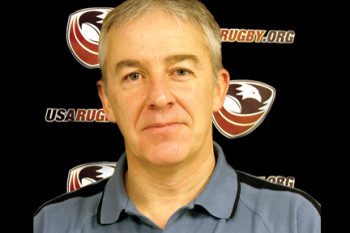
With current USA Rugby CEO, Nigel Melville leaving to become the new CEO for RIM (Rugby International Marketing), the new CEO of USA Rugby has to restructure the player pathway to work more closely with colleges. Other rugby nations don’t have a college sports system like ours – young players progress naturally from their club’s youth program to the senior one. Meanwhile, in the USA, you have the HS/Club path, after which young players are left at a crossroads. It means a small but growing number of promising rugby players are rejecting the USA’s college system to try their luck in Europe or one of the SANZAR nations. And we lose them. Of those who do go to college, many often leave rugby for another sports because of much better scholarship opportunities. So, we lose them, too.
Bringing together all interested parties and finding a clear path through the minefield of vested interests and disagreements will be difficult, to say the least, but it is necessary if the pathway issue is to be resolved.
One of the positives for the program is that there are plenty of promising players coming through. This is why the next four years are vital. Of the players on the 2015 roster, here is a list of players who could form the core of a USA team at the 2019 World Cup.
Props: Eric Fry, Titi Lamositele
Hookers: Joe Taufetee, Zach Fenoglio (maybe)
Locks: Greg Peterson, Cam Dolan
Back row: Danny Barrett, Samu Manoa (hopefully)
Scrumhalf: Niku Kruger
Flyhalf: AJ McGinty
Centers: Thretton Palamo, Seamus Kelly
Back 3: Blaine Scully, Brett Thompson, Zach Test (maybe, although he may focus on 7s)
Hopefully for the USA, McGinty, Kelly and Barrett (post-Olympics) can pick up pro contracts.
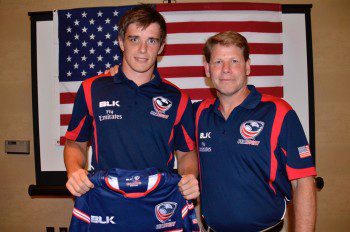
Assuming they do not choose other sports at college, the player pool will have some star players from the U-20 program coming through. Also with the growing number of universities and colleges having varsity programs, the will be a more players available with more developed skills. Some schools could offer scholarships to foreign-born and raised players who, like AJ McGinty, could in time become US-eligible. This is key because while the continued use of sevens players in both 7s and 15s gives a short-term boost it ultimately damages both programs.
The next key question is arguably the most important: who will coach these players? Here are a couple things to keep in mind.
Rugby has eight or nine leading nations. Even they can have dud coaches, such as France’s Philippe Saint-Andre and South African’s Heyneke Meyer. But for every dud, there’s a Joe Schmidt, a Warren Gatland or a Michael Cheika who can bring out more than the best out of their players. Get the Eagles a proven international coach with a commitment to work the full World Cup cycle and I have no doubt we would skyrocket, as Japan have done under Eddie Jones.
Would an American Football team select a the head coach of a HS team and make them their head coach? No. But USA Rugby did. This is not intended as a dig at Mike Tolkin in any way. It just illustrates the gap between coaching at club level in the USA then being made head coach of a Tier Two international side. For instance, look at the struggles of the last two sevens coaches in adjusting to the 7s series. The 7s program did not see drastic improvement until an experienced and successful coach was brought in, in the form of Mike Friday.
One rugby rainman asked: “Couldn’t Mike Friday combine being 7s coach with being backs coach to the XVs side? That could be part of the solution?” This is an interesting idea and could work – if not for the fact that Friday already serves as the Director of Rugby for London Scottish along with his USA Rugby role. However, a head coach has to be found first!
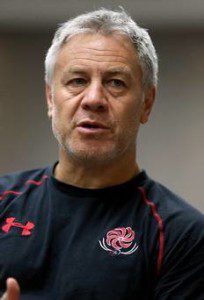
The name of former Auckland NPC (NZ) and Ulster province (Ireland) head coach Mark Anscombe has been linked to the post. Another is former Springbok and current Glendale Raptors coach, Andre Snyman. The poor performance of the USA scrum and lineout at the World Cup has hurt the chances that current assistant coach Justin Fitzpatrick should be considered.
Nick Attewell suggested a route the USA might want to explore. When the other breakthrough team of the Rugby World Cup, Georgia, needed a new head coach after the last tournament in 2011, they turned to New Zealand. They asked the NZRU to recommend a coach for their national team and were given the name Milton Haig.
Haig has been all Georgia could hope for and more. He was so focused on being successful that he moved his young family to Georgia to fully commit to the program. The program has grown in leaps and bounds with the Georgian RFU leaving it in his hands if he wants to continue. The USA needs to find their Milton Haig.
Time will tell what happens with the USA program, players and coach. The one thing that we can confirm is the clock started ticking as soon as the referee blew the final whistle at the USA – Japan game. There is more pressure to make quick decision than after previous campaigns because in February of 2016, the Americas 6 Nations kicks-off for the first time. The Americas 6 Nations is modeled after the European 6 Nations and features the USA, Canada, Argentina, Uruguay, Chile, and Brazil. With all that said, we now wait to see what decision the USA Rugby board and new CEO make.
That’s it for now! Feel free to comment below, look for and “Like” our Facebook Rugby Wrap Up Page and follow us on Twitter@: RugbyWrapUp, Junoir Blaber, James Harrington, Jamie Wall, Nick Hall, DJ Eberle, Jake Frechette, Scheenagh Harrington, Jamie Loyd, Cody Kuxmann, Karen Ritter, Ronan Nelson, Kaitlin McCabe, Rocky Brown and Declan Yeats, respectively.

